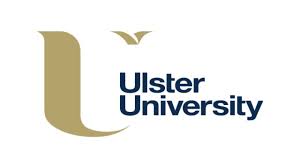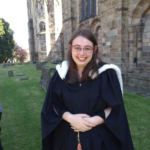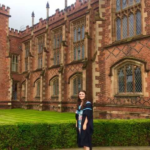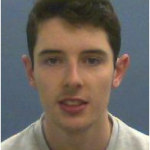Education
Education
The Education Pathway is offered at Durham, Newcastle and Queen’s University Belfast.
NINEDTP strengthens and broadens our research expertise in Education by integrating previous NEDTC provision with Education at QUB. Education is a complex field of enquiry with a range of epistemological and methodological approaches from across the domains of philosophy, psychology and sociology. Our work represents this diversity and links directly to ESRC strategic priorities about creating ‘a vibrant and fair society’. The research training modules of the professional (taught) doctorate programme (the EdD) of QUB were previously ESRC accredited. QUB has also been an ESRC regional centre for capacity-building in research training. This pathway builds on existing strengths and expertise across the three institutions in areas such as educational assessment, innovative methodologies, psychological approaches in education and the use of technology in education as well as using existing methodological strengths and collaborations. It also draws on particular strengths of each School in areas such as pedagogical innovation (NU); public consultation of children (QUB), large-scale evaluation designs (RCTs) (DU, QUB) arts- based/narrative research and assessment in education (DU, QUB).
DU, NU and QUB have distinct and complementary strengths in Education with over 75FTE academic staff, over £1.4m in RCUK grant income and 9 impact case studies (3 each) in REF2014. DU’s research profile is characterised by four areas of excellence. These include: (1) Assessment, Evaluation and Effectiveness; (2) Curriculum and Pedagogy; (3) Methods and Critical Approaches; and (4) Individuals and Contexts. NU has expertise in facilitating collaborative enquiry focussed on pedagogical innovation, which has led to better understandings of theoretical conceptions of how partnership work can be managed and sustained. The Research Centre for Learning and Teaching (CfLaT) is at the forefront of these methodological innovations, especially research which values the participant voice and co-production. Methodological innovations centre on visually mediated research, participatory, theory-based methodologies and critical methodologies. The SOLE Research Centre (£433k investment from NU since 2014) explores the potential of children living in challenging environments to self-organise and teach themselves when given access to the internet. NU also supports interdisciplinary work with speech & language sciences and applied linguistics in the areas of child language acquisition and impairment and second language learning. QUB offers high quality experience and excellence of training in research across four main research centres as well as broad educational dimensions: (1) the Centre for Children’s Rights has expertise on the facilitating the public consultation of children; (2) the Centre for Evidence and Social Innovation is a nationally and internationally recognised leader in large-scale evaluation designs (RCTs); (3) the Centre for Shared Education is at the forefront of research methodologies and designs to evaluate models of shared education effectively both within UK settings and global areas of conflict; and (4) Centre for Applied Behaviour Analysis works with research methodologies promoting inclusion and effective education in the area of special educational needs. Research at QUB is also internationally recognised for supporting training and capacity building within arts- based/narrative research as well as in significant areas of pedagogy, curriculum and assessment.


Training provision
Students in each of the NU and DU pathways will follow 60 or 70 (NU) credits of centrally provided DTP research training programmes outlined in the case for support. QUB provides research training at doctoral level, through the professional doctorate programme, across a range of research methods and methodologies. PhD students enrolled in the School of Social Science Education and Social Work participate in the research training provided at doctoral level for EdD students. The EdD research training modules are taken over 2.5 days and each contributes the equivalent of 30 D Level CATS points. They provide a specialised programme of standard and advanced level training in educational research methods and methodologies in the following areas (i) Educational Research: An Overview; (ii) Qualitative Research; Methods, Theory and Data; (iii) Quantitative Research: Methods, Theory and Data; (iv) The Professional as Researcher; and (v) Philosophical and Ethical Issues in Educational Research.
The MA in Education Research (NU) and MA in Research Methods (Education) (DU) received recognition through NEDTC and we added new provision at QUB through an MRes in Education. In addition to the core research training, additional subject specific credits can be drawn from modules in a range of areas, including: Investigating Learning Processes, Leadership in Education, The Role of the State in Education, and Pedagogy and Curriculum (all at NU). Training in Research Methods Education at DU includes: Evaluating Educational Research; Experiments in Education and Qualitative Research in Educational Settings. At DU, training in Assessment and Evaluation in education draws from the MSc in Educational Assessment through: Standardised Tests and Exams; Classroom Assessment; and Judgement-Based Assessment. All 1+3 students will complete a Master’s research dissertation appropriate for each pathway. Educational Assessment 1+3 students will undertake the MSc in Educational Assessment, a programme developed to draw on strengths in assessment and quantitative techniques, particularly the expertise of the Centre for Evaluation and Monitoring, with modules in Standardised Tests and Exams; Classroom Assessment; and, Judgement-Based Assessment with a required research dissertation. QUB offers research training modules within the taught doctorate and a suite of subject-specific modules that reflect the research strengths of the school and emerge from the focus of 4 international research centres and broad areas of research expertise (such as Children’s Rights, Assessment, TESOL, Shared Education, Special Educational Needs). Such modules include: (i) Education in Divided Societies: Contribution to Social Cohesion; (ii) Assessment and Testing: Concepts and Issues; (iii) Educational Special Needs: Policy and Partnerships for Inclusion; (iv) Education and the Law; (v) TESOL: Issues in Language Learning; and (vi) TESOL: Discourse and Pedagogy. Again students who are researching projects within these specific areas are expected to participate in these subject- specific modules and to attend these as part of their more general training within the School and across the University.
These pathways aim to develop disciplinary skills and expertise in education such as understanding the significance of different epistemological positions which provide the context for theory-building in education, its research design, and choice of appropriate analytical techniques as well as strategies for engaging with a range of users in education and maximising impact. All three institutions have significant numbers of part-time students with options and support available for these routes. A variety of delivery modes are used catering for specific needs. These include intensive teaching blocks (up to 60 credit modules over six weeks); weekend delivery of modules over a term (6 days intensive teaching), and blended learning approaches using e-learning resources (face-to-face with distance support). Modules at NU, DU and QUB include international students and teacher-researchers who provide a broader perspective for DTP students.
Advanced training
For students on 3.5 year (PhD only) and 4 year (PhD plus research training) awards, subject-specific modules or specialist training events can be accessed for audit by students at any point during their research programme. In advanced qualitative methods, students can select from: Visual Methodologies (NU); Practices of Enquiry (NU); KTP on Qualitative Assessment of Thinking; Narrative and Arts Based Research Approaches; (QUB). In using evidence in education, students can select options such as: Thinking Critically About Research Methodology (NU) and Analysing and Interpreting Educational Research (DU). At QUB, students can study sociological approaches to children and childhood and psychological approaches to childhood.
Postgraduate researchers are fundamental to the research culture in Education at DU/NU/QUB. Postgraduate research students share ideas and research informally and through a formal Education seminar series. Further opportunities exist to work more closely through student membership of CfLaT and SOLE at NU or with CEM at DU. At QUB a vibrant Graduate School offers an intellectual and social hub for students. It provides high quality transdisciplinary training and development programmes for doctoral students . Investment in the DRC was also aligned with investment in designated accommodation within the School buildings for students which provides office space, fixed-desk computing as well as wifi access, and communal meeting areas. At NU since 2008 the research environment has been strengthened by a £4.2m investment in a new building for Education. NU also has in place a number of initiatives designed to ensure students are more integrated into the research of the School and particularly into CfLaT, which is central to University strategy for the integration of research and teaching, and was highly commended in the recent Institutional Audit. DU has also invested heavily in refurbished buildings (2009) and has dedicated rooms for PGR students to facilitate the development of a sense of scholarly community. At NU, the iLAB learning facility for technology enhanced learning research has been introduced. NU hosts an annual PG Education research conference where students present aspects of their research to peers, staff and supervisors, and students may publish outstanding research alongside staff in the School’s electronic journal: this is open to DU and QUB education students in the DTP. DU has a series of weekly PGR seminars in which students present and discuss their research. These seminars are attended by academics from the School of Education ranging from Early Career Lecturers to senior researchers. Student seminars are coordinated with research seminars held at the school of education enabling PGR students to be an active part of the school’s research culture. A funding scheme has also been established to encourage and support PGR students to present their work at national and international conferences. QUB has a successful collaboration programme with the School of Education, University College Dublin. These two host and support the organisation of The All Ireland Educational Doctoral Conference, which is a student-led initiative. This would extend to DU and NU students in the new DTP. There are close links in all Schools with other subjects, e.g. Applied Linguistics (NU, QUB), Speech & Language Sciences (NU) (language acquisition/working with language delay/disadvantaged populations), and Sociology and Psychology (DU, QUB).
Evolution of Pathway
NINEDTP provides an opportunity to develop future pathways in Educational Psychology and Technology Enhanced Learning (TEL). These will include a link between Educational Assessment and TEL, which builds on theoretical and practical expertise at all three institutions and involves multi-disciplinary perspectives with both Psychology and Computer Science/Informatics (e.g. the new iLAB:learn at NU) and the Practices of Enquiry modules (NU). This also draws on strengths in CfLaT and existing modules such as Developing Innovative Curriculum through Student Enquiry and Developing Thinking Skills.




































